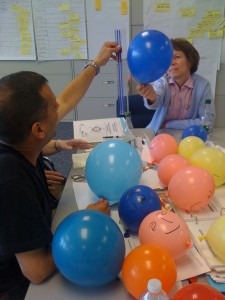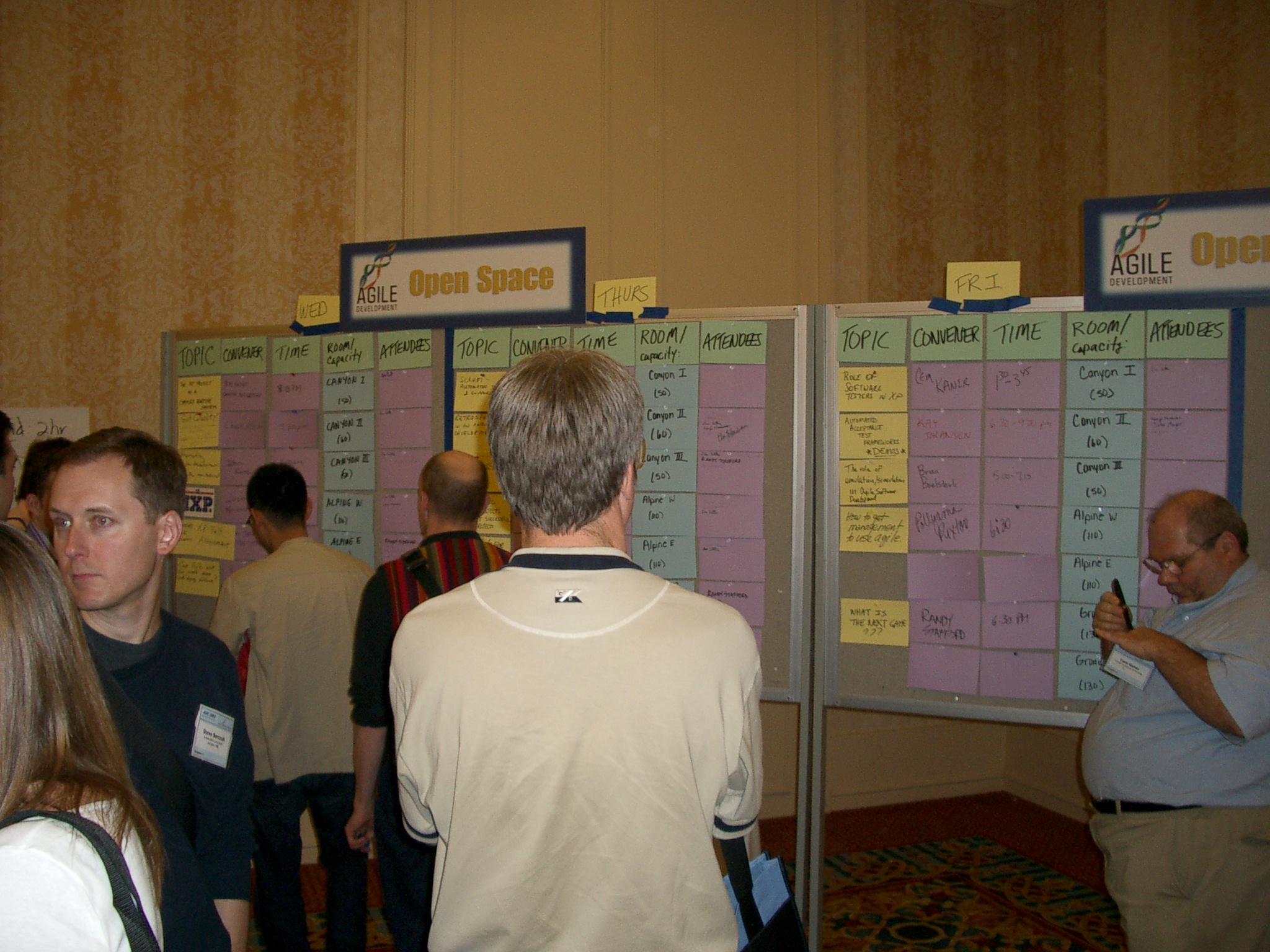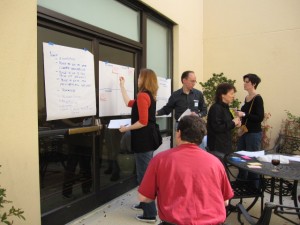Agile Requirements by Collaboration
By Guest Blogger Rob Elbourn, Scrum Team Lead working at a major financial concern in UK. Visit Rob’s Agile78 Blog
I recently attended the “Agile Requirements by Collaboration” presentation at Skills Matter lead by Ellen Gottesdiener from EBG Consulting. Here are some of the main points I got from it.
Ellen described how collaboration needs to happen on several different levels of granularity along the way requirements are viewed on agile projects– the product (which establishes the product or portfolio roadmap), the release and the iteration (or work-in-progress).
Exploring these views can occur in several different facilitated workshops, from the roadmap workshop, to the release workshop to iteration workshops. The corresponding requirements that are clarified or driven out from these workshops also appear on different levels – boulder, rock and pebble.
The idea is that the pebbles form your user stories and are driven out at the level of the iteration workshop. Projects can encounter rock sized requirements at the iteration level and suffer a time delay as new pebble requirements are chipped off from them. This brings to question the level of “doneness” for a user story.
Continue reading


